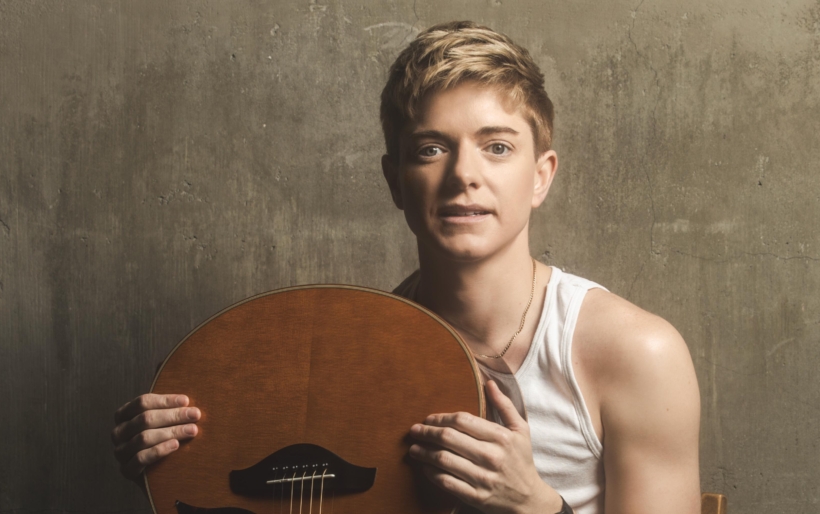As a songwriter, Mae Martin’s free from the pressure of the punchline

Mae Martin
Much of Mae Martin’s work as a stand-up comedian, television writer and actor has been based on their own life. It’s Mae’s vulnerability about things like queerness and addiction that has won them so many fans.
It’s that willingness to be vulnerable for their audience that made music feel like such a natural move.
“There was an appetite there for me to share that side of myself,” they say. “I’ve been lucky. I think it’d be harder if I was, like, Carrot Top.”
Today, Martin talks about their debut album, I’m A TV, and all the ways telling jokes and making music are connected.
“Sometimes, my point of view isn’t that clear about a certain thing, and it’s more of a feeling,” they say. “So there are things you can express with music that you can’t with stand-up and vice versa.”
On feeling inspired in Los Angeles
“I’d been in England for 12 years, hanging out with comedians, and that was my whole social world. Then, [Los Angeles] was a big move. I moved out to do a writer’s room for a TV show that I was developing. I didn’t really intend to stay, but I had just had top surgery, so I was feeling really confident, or at least embodied, and more myself than I ever had. Also, I had a lot of time to myself in an Airbnb, and I was feeling pretty earnest. It was nice to have a break from having to always find a punchline to something.”
On building confidence at Largo, an LA club
“One of the places that I really wanted to go was Largo, this kind of iconic venue in LA, because I am a deep Elliott Smith nerd. I knew that he had played there and knew the owner … So I was really lucky to start performing there, and I met Mark Flanagan, who’s this kind of iconic character who just knows everyone. He was very encouraging because I told him how much I love Elliott Smith — they’ve got the piano there that Elliott played on…”
“So I started doing Elliott Smith covers in my comedy show — like, I would do a little segment and I’d have a musical guest and we’d do an Elliott Smith cover … That gave me some confidence. I think the first time I did that, my voice was shaking; I felt like I’d just started performing for the first time. It was really like starting from scratch with nerves. So I built confidence there.”
On what makes comedy and music different
“With stand-up, you have to be so clear about what you want to say or what your point of view is. You’re just, ‘Hi, my name’s Mae Martin and I feel this way about this thing and this is exactly what happened.’ So it’s very refreshing to be able to sit in the ambiguity of metaphor. Sometimes, my point of view isn’t that clear about a certain thing, and it’s more of a feeling. So there are things I think you can express with music that you can’t with stand-up and and vice versa.”
On Canadian bands
“I never really appreciated it until I left — isn’t that always the way? — but I think if you grew up there and then you’re living anywhere else and you meet someone from Toronto, you suddenly realize how much you miss it and love it. Also, I think — especially because the time in my life, where I was really playing music and got into music was my teens — this album was reconnecting with that earnest teen. It felt like Toronto was the framework for that…”
“I just made [Wayward], and it’s set in 2003 — two of the main characters are Toronto teens, so it was great to get some Canadiana on the soundtrack, like The Tragically Hip and Sam Roberts, and even Odds.”
This episode of World Cafe was produced and edited by Miguel Perez. Our senior producer is Kimberly Junod and our engineer is Chris Williams. Our programming and booking coordinator is Chelsea Johnson and our line producer is Will Loftus.